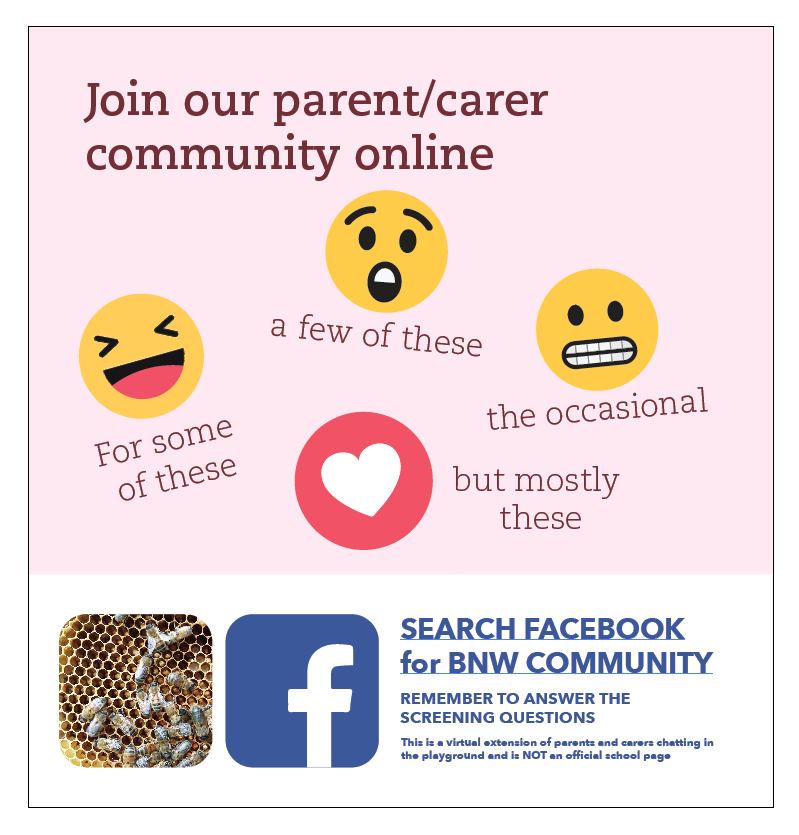community

should I talk to my child about COVID-19?
Firstly I want to say, don't be afraid to discuss Coronavirus with your children; it is a hot topic of conversation, but this pandemic is also changing our behaviour significantly. Young people are experts at reading the grownups around them and are quick to pick up on when our actions and words are not cohesive. The PDF linked below is adapted from a DET document, providing helpful tips on how to talk to your child about COVID-19.
For those families with children who respond to social stories, below are two social stories that describe Coronavirus in accessible terms and images. Thank you to Coburg Special Development School for sharing this resource.
how can I reduce my risk of coronavirus infection?
The following advice has been taken from the DHHS COVID-19 website:
- Keep a full arm-span (about 1.5 metres) between yourself and other people where possible
- Wash hands often with soap and running water, for at least 20 seconds. Dry with paper towel or hand dryer
- Try not to touch your eyes, nose or mouth
- Cover your nose and mouth with a tissue when you cough or sneeze. Dispose of the tissue immediately and wash your hands
- If you don’t have a tissue cough or sneeze into your upper sleeve or elbow
- Continue healthy habits: exercise, drink water, get plenty of sleep and avoid smoking
- Buy an alcohol-based hand sanitiser with over 60% alcohol
- Stay at home if you feel sick, and undertake physical distancing as outlined in the section below.
- Wearing a face mask is not necessary if you are well.
People can minimise exposure through physical distancing, for example:
- avoiding crowds and mass gatherings where it is difficult to keep the appropriate distance away from others
- avoiding small gatherings in enclosed spaces, for example non-essential business meetings
- avoiding shaking hands, hugging, or kissing other people
- avoiding visiting vulnerable people, such as those in aged care facilities or hospitals, or people with compromised immune systems due to illness or medical treatment.
sustainability corner - hand hygiene
I wanted to share a couple of tips on reducing hand hygiene waste.
Foaming hand wash hack: Rather than keep buying the foaming hand wash pump packs, refill it with a bulk refill of normal liquid hand wash diluted 1:2 with water. That’s the equivalent of 3 refills for the price of one; a refill that lasts longer and less plastic waste.
Make your own hand sanitiser: Traipsing around town with a moon boot and a toddler in search of hand sanitiser is not fun so instead I researched a couple of DIY hand sanitiser recipes and sourced ingredients from two local shops. Use this mix to refill containers and you will be saving plastic waste!
Key points:
To be effective against viruses, sanitiser should contain a minimum of 60% alcohol. However, any more than 80% pure alcohol is likely to be too drying for the skin. Aloe Vera Gel (or Glyerine) are added as an emollient (to soothe and moisturise the skin). While optional, adding a few drops of tea tree oil may increase antibacterial properties and lavender essential oil may help us stay calm amid the craziness!
- 3 parts Isopropyl Alcohol 99% to 2 parts Aloe Vera gel and SHAKE WELL
- 9 parts isopropyl alcohol 70% to 1 part Aloe Vera Gel and SHAKE WELL

